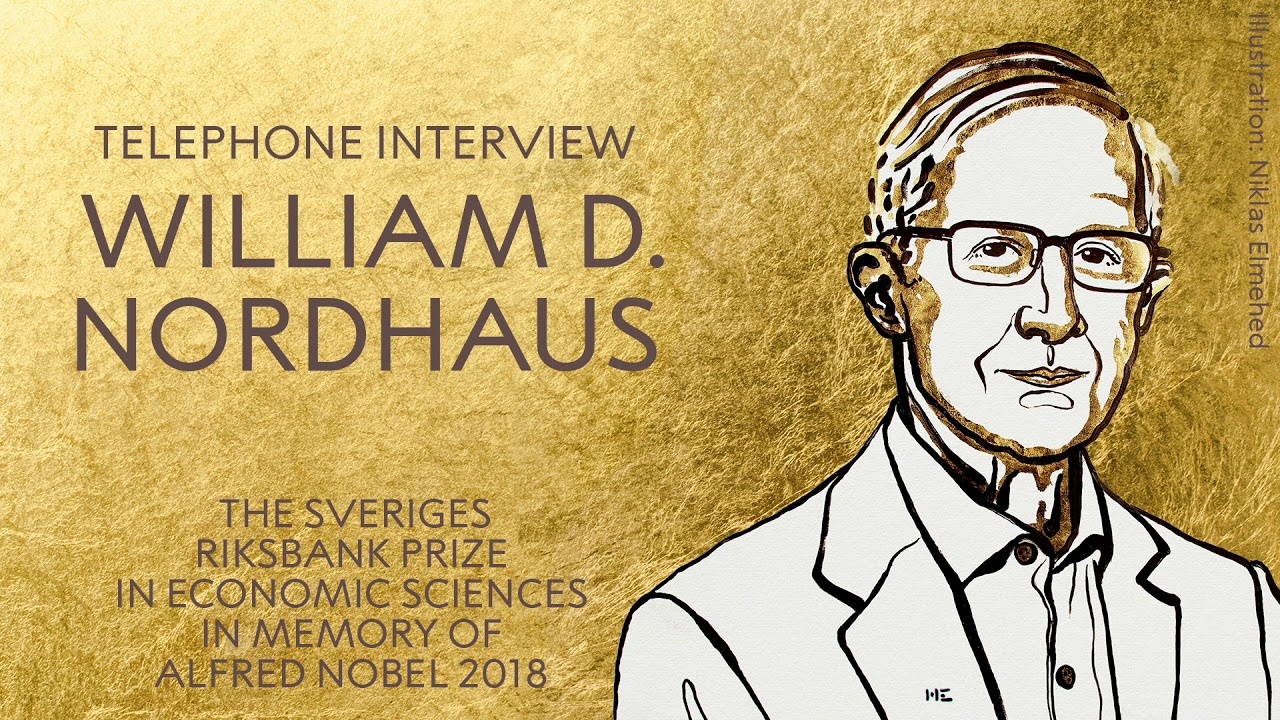

The Royal Swedish Academy of Sciences announced the 2018 Nobel Prize in Economics to a duo for their work on how the world can achieve sustainable growth.
The prize was divided equally to William D. Nordhaus of Yale University and to Paul M. Romer of New York University’s Stern School of Business, both Americans, who have “designed methods for addressing some of our time’s most basic and pressing questions about how we create long-term sustained and sustainable economic growth,” the academy said Monday in a
press release.
Nordhaus is known for his pioneering model describing how economic activities drive climate-warming emissions. He is a major advocate of using carbon taxes to reduce greenhouse gas emissions.
He has worked on this topic since the 1970s, when scientists became increasingly worried about fossil fuels contributing to a warming world, the academy said.
Laureate William Nordhaus’ research shows that the most efficient remedy for problems caused by greenhouse gas emissions is a global scheme of carbon taxes uniformly imposed on all countries. The diagram shows CO2 emissions for four climate policies according to his simulations. pic.twitter.com/tmxUE6MiLn
— The Nobel Prize (@NobelPrize) October 8, 2018
Coincidentally, the academy’s announcement was issued the same day that a United Nations’ Intergovernmental Panel on Climate Change (IPCC)
issued a report about the catastrophic effects of unmitigated climate change and advised rapid government action. The report builds on and cites Nordhaus’ work, The New York Times reported.
When it comes to averting climate change, “the policies are lagging very, very far—miles, miles, miles—behind the science and what needs to be done,” Nordhaus
said in an interview after his win.
He added that the United States has fallen behind in mitigating global warming due to the “disastrous policies” of the
Trump administration. President Trump has pushed for fossil fuel usage and infamously pulled the U.S. out of global Paris agreement to limit warming.
Romer, whose work focuses on how economic forces govern the willingness of firms to produce new ideas and innovations, laid the foundation of what is now called “endogenous growth theory,” the academy said. The theory explains how ideas require specific conditions to thrive in a market.
"My work teaches us that what happens with technology is under our control."
This year's Economic Sciences laureate Paul Romer reminds us that technology doesn't just happen to us like the weather. It is a tool we can control.
Full telephone interview:https://t.co/dRjPym4OuL
— The Nobel Prize (@NobelPrize) October 8, 2018
Romer is less pessimistic about the future of the planet in light of the IPCC’s dire report, but said work needs to be done to slash carbon emissions.
“It is entirely possible for humans to produce less carbon,” he said at the press conference announcing his prize. “Once we start to try to reduce carbon emissions, we’ll be surprised that it wasn’t as hard as we anticipated.”
Today marks the 50th anniversary of the Nobel prize in economics.
“The contributions of Paul Romer and William Nordhaus are methodological, providing us with fundamental insights into the causes and consequences of technological innovation and climate change,” the academy said. “This year’s Laureates do not deliver conclusive answers, but their findings have brought us considerably closer to answering the question of how we can achieve sustained and sustainable global economic growth.”
Nobel Prize Winners Name Trump and His 'Ignorance' as Top Threats to World Population https://t.co/PqsTwXDBJ7 @Greenpeace @World_Wildlife
— EcoWatch (@EcoWatch) September 2, 2017

 233k
233k  41k
41k  Subscribe
Subscribe 